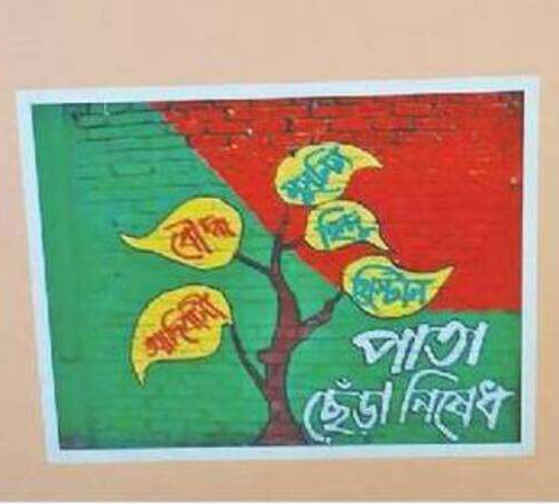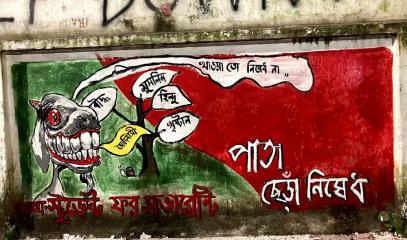Erasing of word ‘adivasi’ from school books sparks tribal protests in Dhaka
Under pressure from an Islamist group, the National Textbook Commission removed an image that referred to indigenous groups and symbolised the unity and diversity of the country. The accusation: ‘It evokes separatist ideas’. Tribal groups: ‘It goes against Yunus’ promise to build a non-sectarian and inclusive Bangladesh’.
Dhaka (AsiaNews) - The Chattogram Hill Students' Council (PCP) and the Hill Women's Federation are strongly protesting against the removal of the term adivasi (indigenous) from the Bengali grammar and composition textbooks of the ninth and tenth grade. They have demanded that the history and identity of the indigenous peoples of Bangladesh be included in the teaching material.
The controversy arose around an image on the back cover of some textbooks depicting the word adivasi together with Muslim, Hindu, Christian and Buddhist terms on five leaves of a tree, accompanied by the inscription ‘It is forbidden to pluck the leaves’. The work symbolised the unity and diversity of the country but was removed from the online version on 12 January following a protest by members of Students for Sovereignty, an Islamist student group. The group had surrounded the office of the National Curriculum and Textbook Board (NCTB), demanding the removal of the word adivasi.
Ziaul Haque Zia, coordinator of Students for Sovereignty, defended the initiative, arguing that the recognition of small ethnic groups as adivasis is part of a broader separatist agenda. ‘Only separatists and their allies inside and outside Bangladesh propagate this demand,’ Zia charged. ‘Their goal is to consider small ethnic groups as indigenous in order to justify the formation of a separate state, Jummaland, by detaching the Chittagong Hill Tracts (CHT) from Bangladesh,’ Zia said, calling on the government to ‘form a commission of enquiry to identify these individuals, remove them from their positions and hold them accountable.
The National Indigenous Peoples' Council Greater Dhaka Committee spoke out against these claims, calling for the reinstatement of the term adivasi in textbooks. The organisation pointed out that the indigenous peoples of Bangladesh come from Christian, Hindu and Buddhist communities and represent the diversity of the country. Secretary General Bibhuti Bhushan Mahato recalled that Acting Government Chief Advisor Muhammad Yunus had previously referred to these communities as adivasis, raising hopes of recognition. Removing the term from the textbooks, therefore, not only disrespects the indigenous peoples, but also undermines Yunus' vision.
Anvesh Chakma, of the Chattogram Hill Students' Council (PCP), accused some groups of being engaged in a campaign to erase the identity of over 50 indigenous communities in Bangladesh. ‘The ruling party has promised to build a non-discriminatory, non-sectarian and inclusive Bangladesh. However, its actions do not reflect these commitments, particularly with regard to the development and recognition of indigenous peoples,' the statement reads.
According to Chakma, denying the identity of indigenous peoples contradicts the spirit of the July uprising and undermines the vision of a multi-ethnic, non-discriminatory and democratic Bangladesh. The statement calls for restoring graffiti with the word Adivasi in textbooks, highlighting the true history and identity of indigenous peoples and granting them constitutional recognition.
Even at the University of Dhaka, protesters used street art to express their dissent: murals and graffiti in favour of indigenous identity appeared on the walls and streets near Central Shaheed Minar, Jagannath Hall and Rokeya Hall in Dhaka. Rupaiya Shrestha Tanchangya, executive committee member of the Students' Movement Against Discrimination, said: ’Extremist groups are spreading false propaganda about indigenous peoples. This act is not just the removal of a term, but an attack on the representation of indigenous peoples in our nation's history'.
20/08/2020 15:39






.jpg)


.png)










